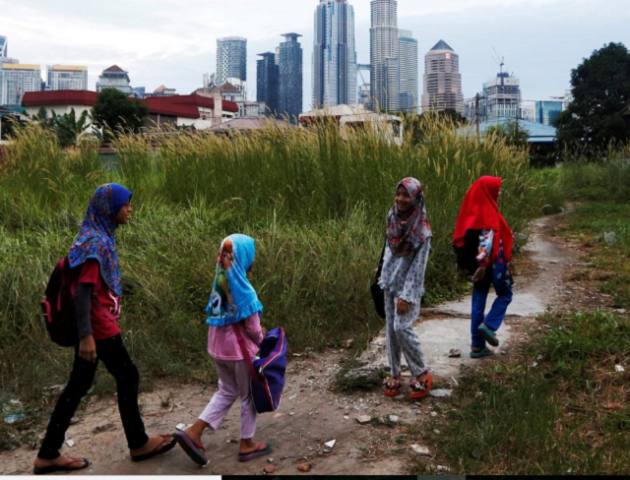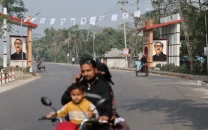Malaysia's poverty levels far higher than reported, UN expert says
Malaysia’s official poverty rate dropped from 49% in 1970 to just 0.4% in 2016

Girls make their way home after school in Kuala Lumpur, Malaysia. PHOTO: REUTERS
Malaysia’s official poverty rate dropped from 49% in 1970 to just 0.4% in 2016.
But Philip Alston, UN special rapporteur on extreme poverty and human rights, said the official numbers relied on outdated measures, with the poverty line remaining at the same level for decades despite increasingly high costs of living.
UN chief condemns airstrikes after Syria hospitals hit
Analyses done by independent groups suggest that Malaysia has “significant poverty” and that its true poverty rate was about 15%, Alston said.
“The government’s official figures would make it the world champion in eliminating poverty ... but I think it’s pretty obvious that that’s not the case,” Alston told a news conference at the end of an 11-day visit to Malaysia.
The prime minister’s office and finance ministry did not immediately respond to a request for comment on Alston’s assertion.
Alston said the national poverty line of 980 ringgit ($234.00) per household per month was “ridiculous”, as it would mean an urban family of four would have to survive on 8 ringgit, or less than $2, per person per day.
UN chief calls for plan to protect religious sites globally
“It can’t be done except under really dire circumstances,” he said.
Undercounting the poverty rate has led to a lack of effective government policies targeting the problem, with too many underfunded and ineffective programs in place, Alston said.
He urged Malaysia to reassess its methods for measuring poverty and take into account vulnerable groups excluded from the data such as stateless families, migrant workers, and refugees.
“Only then can Malaysia begin devising policies that can systematically address their needs,” he said.



















COMMENTS
Comments are moderated and generally will be posted if they are on-topic and not abusive.
For more information, please see our Comments FAQ